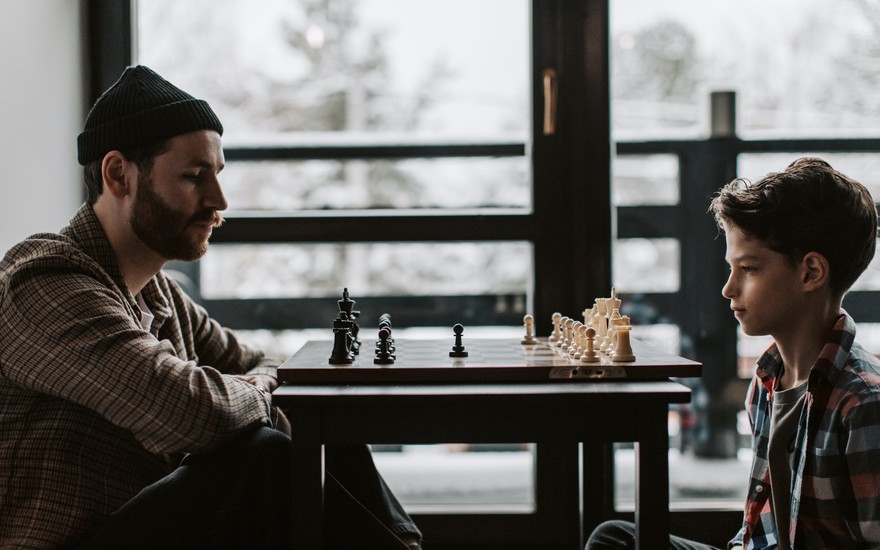
How To Be A Man In Chess
The locals called him ‘The Beer Monster’ - he liked that nickname.I once counted.
He’d drink around 20 pints of “Vitamin T” (the nickname for his lager of choice: Tennent's) between the time that he walked through the door at midday and left again with the delivery driver from the Chinese takeaway next to his house.
That's right - he would have his food “delivered to the pub” and then have the driver deliver both him and his food back home - all to avoid a taxi fare. He was very proud of this arrangement.
Keep Up Man
“For every pint I drink, you have to drink a half pint, you need to keep up. That's what my old man said to me. I was ten years old.”
This was what The Beer Monster told me when I was a bartender in my student days. He was my most regular customer. You would think that when he told me this story, he would have told it with an undertone of sadness, exasperation - maybe a shake of the head. But there was no sense that this was a dark tale.
The saddest part of this story was that it was not a sad story for him to tell.
He recounted the tale with a sense of pride. He didn’t feel sorry for himself. He felt like being the proud owner of such a hard upbringing made him a man. And masculinity was a thing to be proud of in the Scottish pub.

I don’t know if I would say me and The Beer Monster ever became friends.
But we sure did spend a lot of time together over the four years I worked in that bar. He believed that his lifestyle, how much he could drink, how many women he had slept with, how many fights he had been in - those were the things that made him a man.
I was, by that time in my life, unconvinced. I felt sorry for him and his troubles.
How To Be A Man In Scotland
Masculinity in Scotland, at least when I grew up, was celebrated for its harshness. The fight. The drink. The drugs. The sex. That’s what made a man.
It took a long time for me to move away from that as I battled those stereotypes through adolescence and beyond. And I still struggle.
I remember I used to cry. I cried when I lost races, competitions. I cried when I fell off my bike. And then I hit puberty and the concept of being a man and crying became incompatible.
I didn’t cry when I needed to cry anymore. I stood up straight. I faced the death of loved ones stoically. I faced gross disappointment with a shrug. I faced heartbreak without skipping a heartbeat.
All of this came at a cost. Depression. Questioning the meaning of life. Numbing myself with drugs. Isolation. Shame.
But none of that mattered. Because I was a man. And this is how men faced life, unfazed and emotionless...
How To Be A Man In Chess
Recently I published the first-ever episode of Ono Another Chess Podcast in which I interview Chris Callahan, the community manager here on Lichess.org.
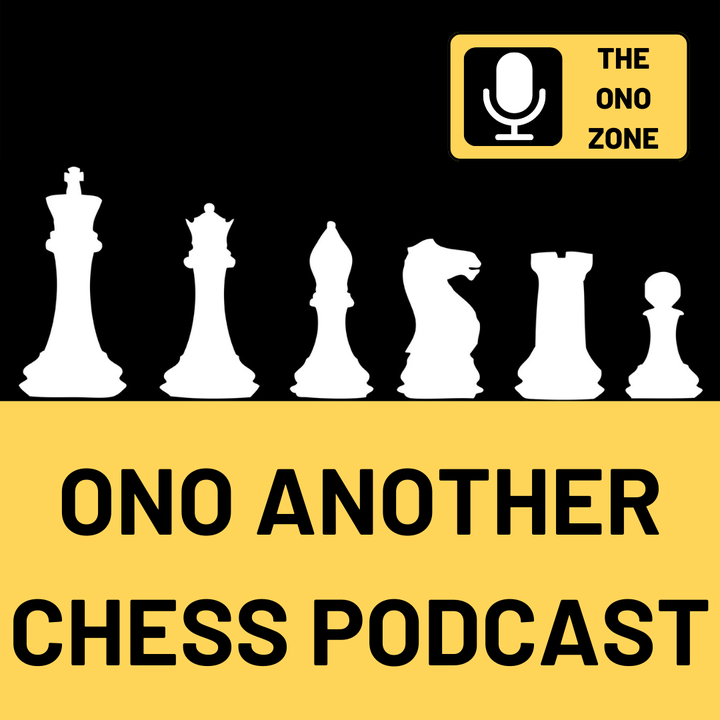
We talked a lot about his article Breaking the Silence and spoke more broadly about the many recent allegations of sexual assault levelled at several (ex-)prominent men in the chess world.
It is clear that the chess community - obviously like many other games, sports and industries - has a serious issue with the behaviour of its men.
We talked a lot about the problems and the challenges of gender and other types of inequality in chess. But for me it took some time for our chat to sink in. It took some time before I was able to try and formulate what I thought might be some actionable solutions.
Things I could do to make a change in this community that I love to be a part of, though not whilst it’s harmful to other members of the very same community.
I thought about how I could be a man in chess.
Stay Out Of It Man
I feel a massive amount of discomfort being a man and talking about the problems women face in chess. And I discussed this discomfort with Chris in our interview.
Isn’t it wrong to be two men talking on a podcast about the problems facing women in chess?
Chris pointed out in my interview with him that in the chess world, it is largely men who hold positions of power. So the conversations where change can happen often occur in rooms full of men, men who likely have less incentive to change the status quo.
And so if things are going to change, that change will need to come from inside the chess community. No top-down leadership is suddenly going to revolutionise the chess world anytime soon, unless we put different people in power.
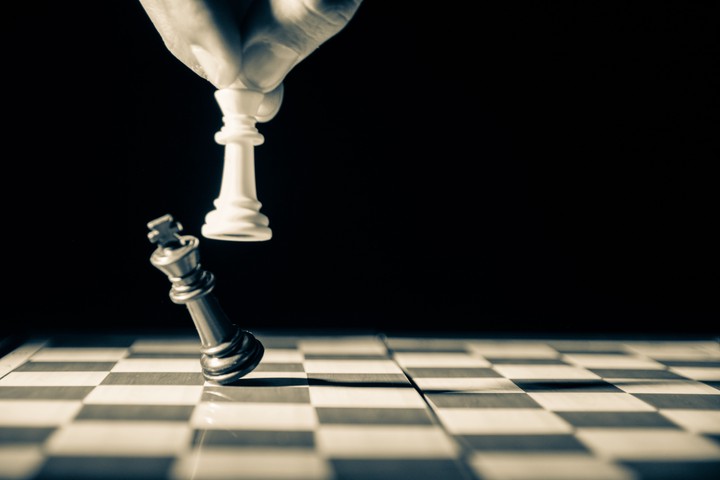
It’s us, the adult chess players, who need to make our community a safer and better place for anyone who wants to join.
And since the issues are created by men and are being perpetrated by men (in power), men in chess need to be part of the change. Men should be at the front lines, not sitting back whilst women like Jennifer Shahade give their all to the fight.
I have a feeling that so many men in chess care about the topic, but stay quiet.
Act Like A Man
But you can speak up. Use your voice.
Sure, you might say the wrong thing, but so what? Then you apologise and keep trying.
Ultimately, if you know that what you are saying comes from a place of genuine care for making the chess community safer and more welcoming for women, then you probably have something positive to contribute.
And so pondering my conversation with Chris, I spent some time asking myself what I could do as a man in chess to push for positive change.
Because I had cared for a while, but I hadn’t actually done anything yet.
What was holding me back? Fear of getting cancelled on chess Twitter? Saying the wrong thing and embarrassing myself? A sense that this wasn’t my fight?
Honestly, I just didn’t really know what I could do to help. So if you don’t know what to do either, here are some things I thought of.
Where Are All The Women?
About a third of my chess students are women. Similarly, a lot of the people I interact with in the online chess world are women.
So I was pretty surprised when over the last three months, at the local chess clubs I have visited in my new city, of the hundreds of players I encountered there - I saw exactly zero women.
None.
As Chris illustrated with a very fitting anecdote during our conversation, even if all of the men behaved perfectly normal towards any women who turned up at chess clubs and chess events - women still probably wouldn’t want to come back if there were no other women there.
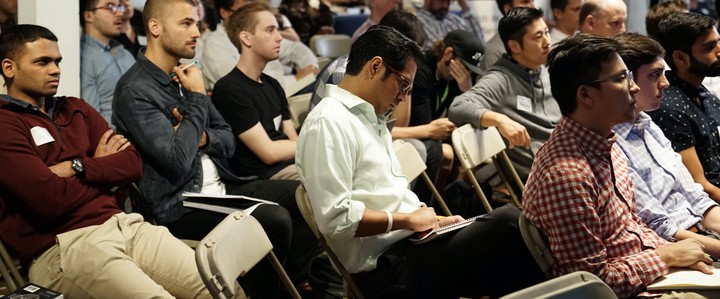
Imagine the roles reversed. You turn up at your local book club, poker club, sports club and you are the only man amongst hundreds of women.
Really imagine that for a minute.
You might not go back, even if everyone was pretty reasonable towards you. Sometimes I want to talk to another guy, or at least not feel like the odd one out in the room. And that’s pretty normal.
So I came back to the question of what I could do about all of this.
Am I a man with a position of power at my local chess club? Well, I’m not, but I can ask the question to the men who do have power. And I will.
I can ask what we can do to create opportunities for women to play chess and not feel uncomfortable. Maybe we can host a women's night. Make an effort to organise Women’s Chess events. Ask women who play chess what they’d like to change at the chess club.
I don’t know exactly what the solution is, but I do plan to open the conversation and keep it going until I see actual change. And you can do that at your local chess club, too.
Use Your Voice For Good
This idea still didn’t really seem like enough. I’d made a podcast episode discussing the topic of women in chess and the very real issues they face, I planned to try to make my own offline chess spaces more female-friendly by pushing the people in power for change, but what else?
Well, I also happen to have a blog (this one) that thousands of people read, so I decided I could try and make a difference here as well (this is me starting to do that). Me using my blogging power to try and do some good.
It was part of the reason I asked Chris Callahan to be my guest in the first episode of Ono Another Chess Podcast - to talk about his groundbreaking articles on this very topic.
Now, I understand not everyone has an audience, but you do have a voice.
Even if you have a handful of chess Twitter followers, you can retweet important posts from women in chess to amplify their voices. Shout it from the rooftops in every conversation you have in chess spaces, online and offline: this is men’s fight, too.
Take action against (sexual) abuse, misogyny and overall sexism in the chess world. Sign a petition to stop abuse of power and get rid of the ‘old boys network’ monopolising chess leadership positions (like this one).
So to recap: you can ask for change at your club, use your voice for good (as often and as much as you can) to join the growing movement for culture and policy changes.
Okay what else?
A Boy's Role Models
One of the great disappointments of my life has been my unfortunate choice of male role models.
For a while, I thought it was bad luck. Just bad luck that the men I looked up to had turned out to be not such a positive influence after all.
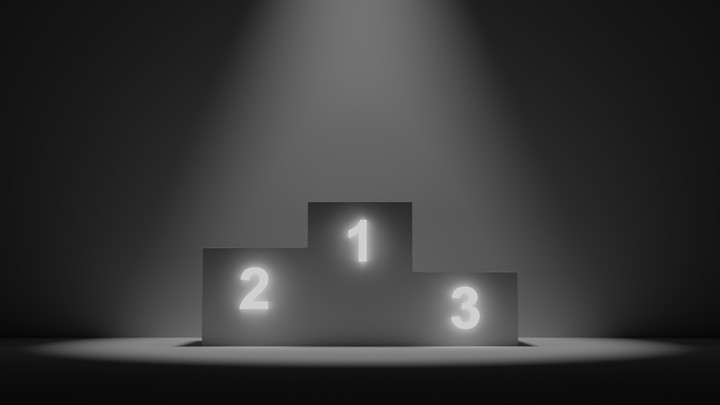
But a brief conversation with the majority of my male friends showed me that I was not unlucky or unique. Pretty much everyone I talked to could point to several of their boyhood heroes who had let them down.
Even this week, as I release this blog post, another of my (ex-)role models has had allegations of (you guessed it) sexual assault leveled at him.
Looks like it’s not just me, it’s the culture.
Like a lot of boys, I was obsessed with football (the rest-of-the-world kind of football, not American football). And a lot of the footballers I looked up to, were later convicted of sexual assault.
And if the men I looked up to weren’t assaulting women, then it was something else that suddenly made them fall off the pedestal I’d put them on. Something that’d make them less of a man in my grown-up, further-developed perspective on masculinity.
One of my ‘heroes’ growing up was the cyclist Lance Armstrong. I used to cycle a lot with my childhood friend. He and I would pretend to be cyclists from the Tour de France and we would race each other to the top of hills.
My friend was diagnosed with cancer as a child and Lance Armstrong’s story of cancer survival, in combination with his extraordinary performances in cycling, were pretty epic and inspiring to both of us at the time. We didn’t just read his books and cheer for him in races, we held him close to us as a source of hope.
And then, after all that, he was revealed as a cheat. And on top of that, a bully. Someone who, through the force of his own power position in the cycling world, coerced many of our other role models into cheating along with him.
As epic as his climb to the top had been for us, the let-down was even bigger.
Who's Watching You?
Now I don’t idolise top chess players the way I might have if I got into chess as a kid, but I know there are boys who play chess looking up to the top professional chess players now.
What do they see? What do we, the adults, show them? What behaviour, beliefs and culture are we nurturing?
These are questions we all need to be reflecting on regularly as adults, because you never know who’s watching.
If you’re a parent like me, you’ll know that kids are sponges when it comes to literally everything you model. Children do what you do, not what you tell them to do.
People talk about the exciting new chess generation coming through and how some of the younger male top players will impact the game of chess. But I wonder if any of them stop to consider the impact they might have on the boys who look up to them as men. And what about the girls who look up to them?
Will this ‘new generation’ of male chess players stop to consider the influence they have on a chess culture that has deep-rooted misogyny running through the core of its institutions and hierarchy?
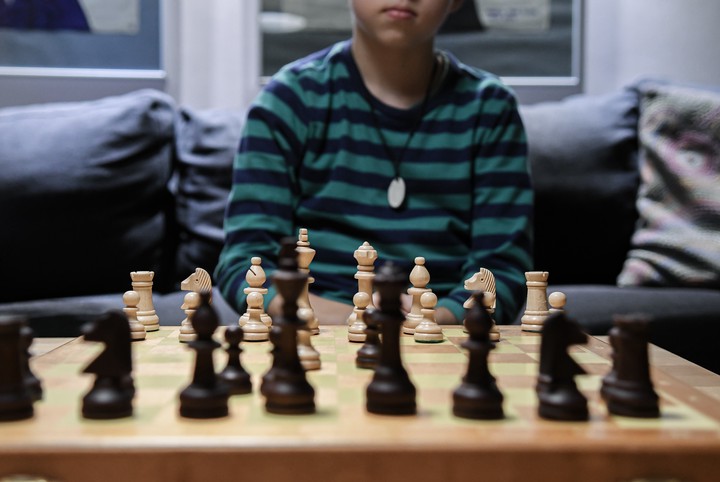
It is not just top players. The chess world is different now that it’s exploding on the internet.
Now, every man in chess with any kind of chess-public-facing influence needs to think about who is watching them. Who is copying the way you speak and the way you behave? It’s important, particularly now with Twitch and YouTube - because it is not just the top chess players anymore who have great influence on the next generation of chess players.
Curious chess-playing kids, whatever their gender, are watching your every move. And they will, one day, occupy the positions of power in the chess world.
So what impact do you want to make on the future of chess, and the lives of these boys and girls?
Power = Responsibility
Both male top players and chess influencers have the ability to show a larger audience what it means to be a man in chess.
But make no mistake, you don’t have to be a chess influencer or professional player to have the power to change the power. Because if you’re a man in chess, you are part of the majority. You have more power by default right now, and with that power comes responsibility to improve the culture.
All of us, whether our audiences are large or small, have the power to demand more. And to show whoever’s watching, even if it’s just one kid, that we do more.
The male chess players of the future are learning more than just chess from us, they’re defining their own sense of masculinity by the examples we set as men in chess.
And I hope that they find a good example. I hope that out there, there is a boy learning to play chess that will find a man in chess to look up to. One who earns his positions not just over the board, but also away from the board. One who strives just as hard to improve the chess culture as he strives to improve his chess.
If you are this man for a kid out there (and you probably are at some point in your chess journey, whether you know it or not), I hope that you know the power you hold and use that to help guide your actions for good.
So that you may inspire instead of disappoint, improve instead of let down - and show everyone what it really means to be a man in chess.
Want to continue this conversation? Join me and other Adult Improvers in the Zoom Hangout I'm hosting every other week (next one is Fri Oct 6th) to discuss this topic + all things chess.
You'll get the Zoom link if you sign up for TheOnoZone Patreon community (free trial available).
If you like to talk about chess to people who are actually as interested in chess as you are, then TheOnoZone Patreon community is for you. Join me + other Adult Improvers like you every other Friday in a live Zoom Hangout, submit questions for guests of Ono Another Chess Podcast, join the Adult Improver Discord, and more. Come try it for free if you like my content, I always love to meet other Adult Improvers.
Grab your free Chess Study Plan Template here and here you can download the Wordy Chess Book List that I created for Adult Improvers who don't fully speak chess yet. Make sure you're on my list to receive news about my future blog posts, podcast episodes and other chess stuff by subscribing to my newsletter.
I'm not just a chess content creator, but also a full-time chess coach specialised in Adult Improvers rated <1100 FIDE (<1600 Lichess rapid/classical, <1300 chess.com rapid). My expertise is taking Adult Beginners/Adult Post-Beginners up to Intermediate level (and beyond). You're welcome to book a free trial lesson with me.
In 60 minutes, I’ll give you specific pointers on the next steps for your chess improvement, based on 3 of your actual games. I don’t do one-size-fits-all approaches, so you’ll get a personalised chess lesson prepared just for you, for no cost at all.
If you want to get in touch with me, please do so on your medium of choice: I have a contact form on my website www.theonozone.com, you can hit me up on Twitter, send me an email at info@theonozone.com, or message me right here on Lichess.
Many thanks to Chris Callahan of Lichess for being the first guest on Ono Another Chess Podcastand to Patrons of TheOnoZone for their support: Marcus Buffett + Dan Bock + Jose C + Dawn Lawson + Glen G + Mikey Wells + Michael Shpizner + Michael G + Karen W + Gregory C + BowiE + Yara V + Stefan K + Ché Martin + Andrew M + Ben Johnson.
More blog posts by TheOnoZone
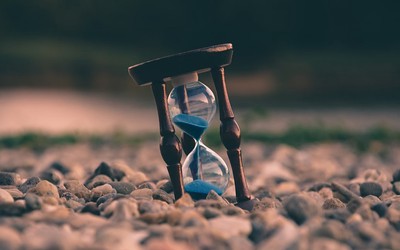
Adult Chess Clock
I used to say that nobody doesn’t have the time for something, they just don’t want to prioritise it.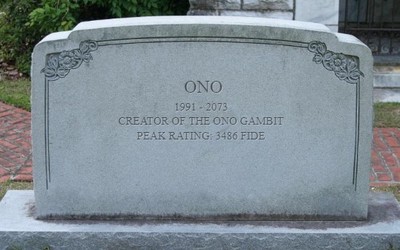
The Ono Gambit
I am getting older.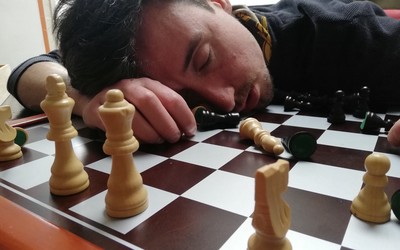
Losing Consciousness
It was game over.